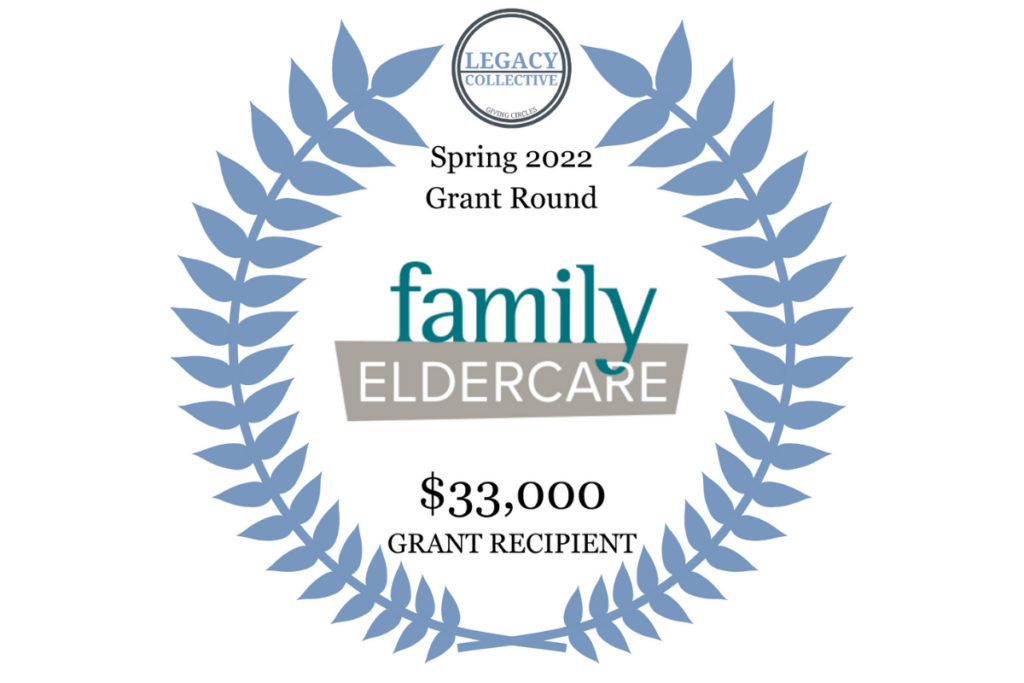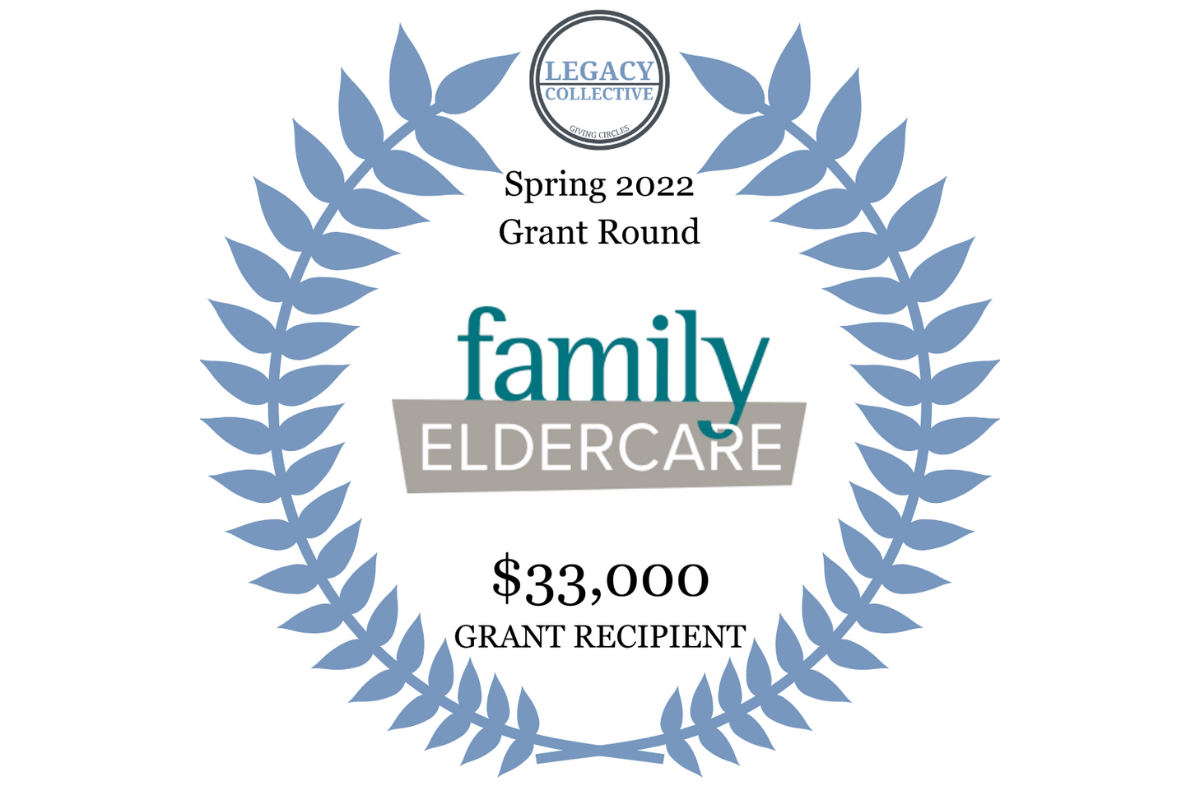
We are excited to announce our 2nd 2022 Spring Grant Recipient!
Thanks to our generous Legacy Giving Circle donor community, Family Eldercare is receiving a $33,000 grant towards their Supportive Housing to Keep Older Adults Off the Street Program in Austin, TX!
Initiative Description: This initiative builds on Family Eldercare’s decades of experience providing supportive services to keep older adults stably housed. We believe older adults and people with disabilities are a vital part of creating a more livable, inclusive community for everyone. Yet for the thousands of older adults experiencing or at risk for homelessness in Austin, aging in community is contingent on having a safe, affordable place to live.
During the COVID-19 pandemic, Family Eldercare scaled up our services substantially to meet the unprecedented needs in our community. Today, our frontline staff bear witness to the effects of the housing affordability crisis unfolding in Austin, which has put many more people at risk of homelessness.
To address this community-wide problem, Family Eldercare has partnered with the City of Austin as well as the Travis County Affordable Housing Collaborative to develop two deeply affordable properties where residents will have access to our wraparound services. We are currently in the pre-development phase for two supportive housing projects creating deeply affordable housing for older adults exiting homelessness. One project, a hotel conversion of 78 units, we hope to complete renovation and move in residents by late 2022. The second, a new construction project for 60 residents we expect to break ground in early 2023. During the pre-development phase, we are seeking funders for capital, operations, and the supportive services that are the essential element of sustainable housing stability for residents who have experienced chronic homelessness.
The properties will prioritize people with significant barriers to maintaining stable housing. These wraparound services, which include benefits enrollment, case management, and financial literacy supports, are critical to the sustainability of our model. Without these supports which remove barriers to housing stability, residents may end up living on the streets.
Family Eldercare has been in the business of keeping older adults stably housed through client-centered services for many years with proven results. Support from Legacy Collective will help us provide those supportive wraparound services to residents to ensure homelessness among Austin’s aging neighbors is rare, brief, and never recurring. As we build up our funding model, having anchor investors like Legacy Collective committed and in place helps will enable us to secure other funding.
Initiative Impact: Our overarching goal for this project is to help Austinites with significant barriers obtain housing stability to ensure homelessness among Austin’s aging neighbors is rare, brief, and never recurring. We will measure our success not only by the number of people served, but also by our ability to promote housing stability. Our primary outcome goal is that at least 80% of clients who transition from homelessness into permanent housing will remain housed for at least 12 months.
Initiative Sustainability: This project looks at sustainability from two perspectives:
- Reducing the need for philanthropic support. Our model assumes that in the first year of new properties opening, there will be significant support services needed to help facilitate the move-ins of hundreds of new residents. After that first year, we expect that most residents will have achieved a level of financial and housing stability that will not require as intensive ongoing supports. Therefore, staffing costs will significantly decrease after year one.
- Improving efficiencies across community-wide homeless services. By providing supportive services to residents, we will reduce the number of people who fall into homelessness. As a result, we expect that the homeless services providers in our community will be able to reduce waitlists and focus their attention on those who need it the most.
